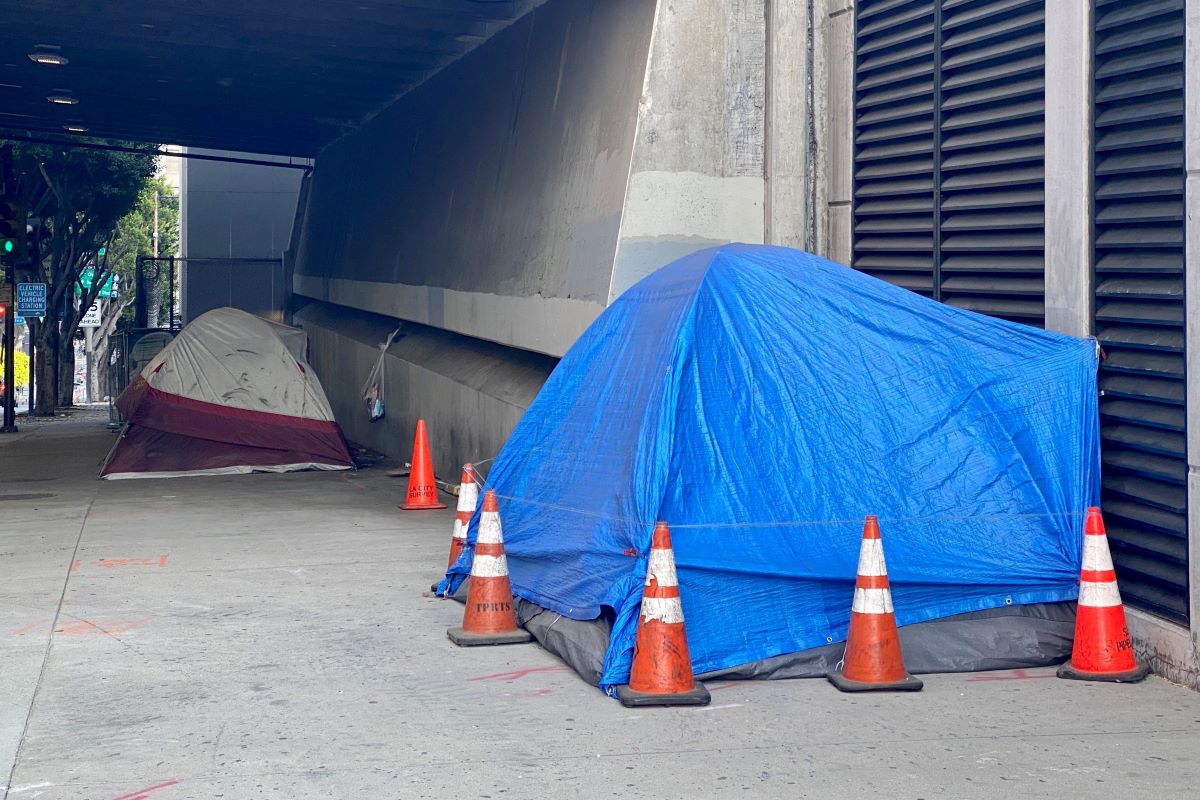A nonprofit group in California recently released a four-pronged plan that they say could end poverty once and for all.
The plan was put together by Ending Poverty in California (EPIC), a group founded by Michael Tubbs, the former mayor of Stockton who piloted one of the country’s first guaranteed income programs for people experiencing homelessness. In the 51-page plan, EPIC calls for public policies that include:
- Providing additional protections for workers
- Eliminating quality-of-life offenses
- Making pathways to homeownership more accessible for people earning low incomes
Enacting these reforms could help heal California’s “fractured” economy, the report argues. For example, California has the globe’s fifth-largest economy, with a gross domestic product of about $3.6 trillion. Still, almost one-third of the state’s population lives below the poverty line, according to census data.
The state is also home to some of the most expensive housing markets in the US. At the same time, more than 170,000 people experience homelessness on a given night, representing approximately 30% of the nation’s unhoused population.
“We live in a world of infinite possibility, and the existence of poverty is not an inevitability,” Tubbs wrote in the report’s introductory letter. “People-made policies created poverty, and people-made policies can dismantle them. We can end poverty, but only if we think bigger, bolder, and smarter, and act with a greater sense of urgency to stop the forces that perpetuate it,” he continued.
EPIC’s plan was released as an unsteady US economy and persistent inflation are causing many households to spend whatever savings they have on necessities like groceries or gas. A recent survey from Bankrate found that 39% of consumers had a lower savings balance at the end of 2022 compared to 2021.
Meanwhile, a growing number of people are using credit card debt to fund everyday purchases as inflation continues to outpace wage growth.
Data from the Federal Reserve Bank of New York shows that American credit card balances totaled $16.9 trillion during the fourth quarter of 2022, a total that’s grown 15.2% year-over-year. More than 18.3 million credit card holders were behind on their payments compared to 15.8 million the year prior.
At the same time, California workers face multiple systemic barriers in the labor and real estate markets that prevent safety net programs like welfare and food stamps from adequately addressing the issue at hand.
One barrier the report points to is that many low-income workers in California do not have access to employer-provided health care benefits. Data from the US Department of Labor shows that approximately 40% of California’s lowest-quartile earners have access to employer-provided health care compared to 85% of workers earning above-median salaries.
For low-income earners with children, finding a job can be difficult because of the state’s lack of affordable and reliable childcare, the report continues. According to research from the California Budget and Policy Center, only one-in-nine income-qualified workers with children receive state-subsidized childcare.
“These injustices are the result of fundamental inequalities that have been built into our institutions for generations,” Tubbs wrote. “We’ve come to accept this status quo as fact, but no one in the Golden State should live in poverty. Full stop.”
How to Create a More Equitable System
To begin redressing these issues, the plan suggests that California lawmakers begin by listening to the experiences of those who live in poverty. Doing so would not only “take full account of the world as it is” but also help illuminate the “tangible solutions that can create a more just and equitable world,” Tubbs wrote.
On a more technical note, California could also start pioneering new ways of measuring poverty with short-term data snapshots that can track an individual’s journey in and out of poverty, the report said. This could help ensure gig workers and other independent contractors are captured in poverty data and allow state officials to track second and third-generational trends to better understand how to uplift people out of poverty.
Once California adopts a new data model, the report suggests that lawmakers elevate similar initiatives across the state. They should also streamline the application process to reduce barriers to enrollment in anti-poverty initiatives and beef up the state’s oversight of these programs.
“California has an opportunity to be the nation’s testing ground for ambitious policies that can dramatically reduce poverty and fulfill the promise at the heart of our nation’s ideals,” Tubbs wrote. “We have the chance to develop and deliver a policy roadmap that is grounded in data and inspired by the stories and ideas of people actually living in poverty.”
How You Can Help
The pandemic proved that we need to rethink housing in the US. It also showed that providing additional support and protections for low-income workers is a clear-cut way to reduce future increases in poverty and homelessness.
That’s why we need you to contact your officials and representatives. Tell them you support keeping many of the pandemic-related aid programs in place for future use. They have proven effective at keeping people housed, which is the first step to ending homelessness.











